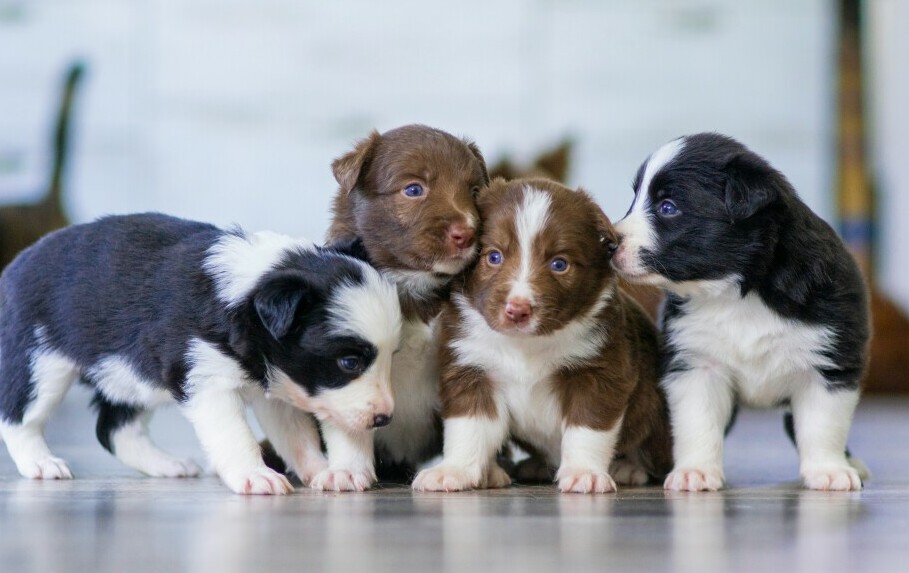
We’re going to break down what dog socialization really means. It’s not just about your dog making friends at the park; it encompasses all the ways your dog interacts with the world. This includes meeting new people, encountering different animals, and experiencing various environments and stimuli.
Now, you might be wondering about the ideal time to socialize your dog. There’s this thing called the ‘critical socialization window’ which is basically a golden period in a puppy’s life, typically up to about 12 to 16 weeks of age, where their experiences profoundly shape their future behavior. Missing this window can mean a lot of catch-up later on.
Think of socialization as molding clay. During this window, your dog’s brain is extra malleable. The interactions they have can positively or negatively influence how they react to things as they grow up. It’s crucial because it determines whether they become a well-behaved member of the dog community or a pup that’s a bit more challenging to manage.
There are some misconceptions out there, like the idea that socialization can ‘cure’ aggressive behavior. That’s not entirely true. It can prevent some behaviors from developing, but it’s not a guaranteed fix for all issues. What socialization does is set a foundation for a more adaptable and well-mannered pet.
Why should you invest time in socializing your dog? That’s what I’m going to talk about next. It turns out that a well-socialized dog isn’t just happier; they’re easier to live with and contribute to a more harmonious community. Let’s explore these perks in the following section.
Looking for fresh dog food delivered? Click here.

The Importance of Socializing Your Dog: Creating a Well-Adapted Companion
In our opinion, a well-socialized dog is like a citizen of the world, ready to get on well with anybody it comes into contact with. In the same way that taking your kids to school helps them start to get used to interacting with people other than their parents, dog socialization training allows your dog to get used to dealing with new faces and experiences. It can help your dog to learn how to appropriately interact with other dogs in settings away from their home.
Socialization training is especially beneficial for dogs that are the only pet in the family and don’t come into contact with other animals often. This allows them to get used to seeing other animals without getting too excited or riled up. Introducing your dog to other dogs can keep them from seeing all other dogs as a threat.
Click here for our top picks for the best training treats for dogs.
Socialization is also extremely helpful to dogs that are overly fearful or anxious. Dogs with past trauma or previous owners that were abusive can be naturally defensive or aggressive towards other dogs, so this training will let them get used to being friendly with other dogs so they realize that not all others are a threat. Training can really help a scared dog open up and come out of their shell so that they will be more able to get along with others.

Reaping the Rewards: The Lifelong Benefits of Socialization Training for Dog
Socialization isn’t just about helping your dog play nice at the park; it’s also about paving the way for a well-rounded life filled with confidence and joy. Let’s explore some of the benefits you’re likely to see when you invest time in proper socialization training for your pup.
One of the fantastic outcomes is the bond that forms between dogs. When dogs are introduced to their peers in a controlled, positive manner, they learn essential communication skills. This leads to more harmonious encounters and playdates, reducing the chance of misunderstandings and aggressive responses.
It’s not only about other dogs, though. Your dog’s interaction with humans—friends, family, or strangers—will significantly improve. Socialized dogs are usually less fearful and more welcoming when meeting new people. That’s a big win when you want your dog to be a part of your social life.
Think about taking your dog to new places. A well-socialized dog is more likely to remain calm in different environments, whether it’s a bustling city street or a quiet hiking trail. This adaptability can make your adventures together more enjoyable and less stressful for both of you.
And here’s something you may not have considered: socialization can contribute to your dog’s physical health. Dogs that are stressed or anxious tend to have compromised immune systems, leading to health issues. Socialization helps mitigate stress, promoting better overall health.
Keep these benefits in mind as you approach socialization with your dog; it requires patience and practice. In the next section, we’ll discuss how to avoid common pitfalls in the socialization process, ensuring that your dog gets the most out of its interactions with the world.

Socialization Pitfalls: Navigating Common Missteps in Training
We’re going to be straightforward with you: even the most dedicated dog owners can, at times, slip up during the socialization process. It’s not just about exposing your pup to new experiences; it’s about creating the RIGHT experiences at the RIGHT time. One of the most common mistakes? Assuming that socialization means putting your dog into every possible situation as soon as possible. This often leads to overwhelm, not confidence.
Remember, positive associations are the building blocks of good socialization. If you overlook the importance of your dog’s comfort and positive reinforcement, you could unintentionally foster fear instead of curiosity. This isn’t just about meeting new dogs; it’s also about ensuring those interactions are enjoyable and stress-free.
Click here for our top picks for the best training treats for dogs.
When it comes to timing, earlier is generally better, but there’s a fine line between early socialization and pushing your puppy too quickly. Those first few months are crucial, but your first attempt doesn’t need to be your last. You can always adjust your approach down the road, continuing socialization into adulthood.
So, how do you strike that balance? Choose socialization activities that resonate with you and your dog. Monitor your dog’s responses, and take it slow. Safety should always come first—don’t compromise on that for the sake of socialization.
In wrapping up, we really hope that you’ve found some valuable insights in this discussion on dog socialization training. Avoiding common mistakes can set you and your dog up for a much happier and well-adjusted life together. Go forth, be mindful, and build a treasure trove of positive experiences with your furry friend! Happy training!
Looking for fresh dog food delivered? Click here.

